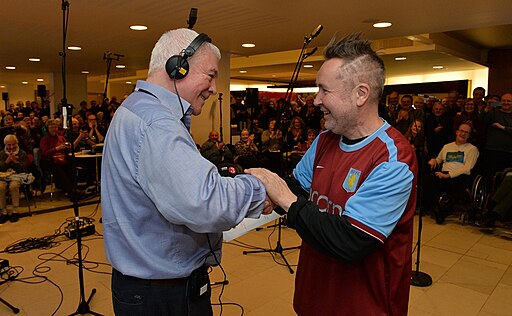Long-serving tune presenter expresses surprise and disappointment over the decision by the new station controller
Sean Rafferty, one of BBC Radio 3’s most enduring presenters, has expressed his shock and disappointment after being informed that he will be replaced as the host of In Tune after 27 years. Rafferty, 77, was summoned to a meeting with the station controller, Sam Jackson, and informed of the decision.
Jackson, the former Classic FM boss who took over as head of Radio 3 last year, delivered the news. The BBC subsequently announced in a press release that Rafferty would be given “a fond farewell,” with his show being taken over by Petroc Trelawny and Katie Derham.
Embed from Getty ImagesSpeaking to The Telegraph, Rafferty said: “It would have been nice to go on my terms and for it to have been done with a little more respect.” He recounted feeling “shell-shocked” during the meeting and expressed his disappointment at not being able to continue on his terms.
Rafferty, who has been with Radio 3 since joining from BBC Northern Ireland, said he had considered retiring in the next few years but was enjoying his work and felt the show was “blossoming nicely.” He turned down an offer to stay on the radio with a Sunday slot, citing the emotional difficulty of continuing under the circumstances.
Despite the abrupt news, Rafferty had kind words for his successors, Trelawny and Derham, and praised his colleagues and the young musicians he has worked with over the years. “Seeing the young musicians coming in has been the really exciting thing,” he said.
Rafferty also shared his plans for the future, joking about spending more time at his bolthole in Donegal and learning how to grow vegetables.
The BBC did not dispute the decision to replace Rafferty, with a spokesperson saying: “Sean was offered a new weekly programme as well as presenting opportunities on Radio 3. Unfortunately, Sean made the decision that he would rather leave the BBC, which we all respect.”
In its official statement, Jackson praised Rafferty’s impact on broadcasting, wishing him the best for the future. Rafferty’s departure follows a similar sentiment expressed by other long-serving presenters who have felt let down by the manner of their exits from BBC radio.
Analysis:
Political: The replacement of Sean Rafferty at BBC Radio 3 can be seen as a reflection of broader organizational changes and leadership styles within large public institutions. The decision by the new station controller, Sam Jackson, to make such a significant change could be interpreted as part of a strategy to modernize and refresh the station’s programming. This may draw parallels to political leadership transitions, where new leaders implement changes that align with their vision, sometimes at the expense of long-standing traditions and personnel.
Social: Socially, Rafferty’s departure highlights issues related to workplace respect and the treatment of veteran employees. His comments about wanting to leave on his own terms and with more respect resonate with broader societal concerns about how older employees are treated in the workforce. It also touches on the emotional impact of sudden job changes, particularly for those who have dedicated many years to their roles.
Racial: While the article does not explicitly discuss racial themes, the broader context of employment practices and respect in the workplace can intersect with discussions about diversity and inclusion. Ensuring that all employees, regardless of their background or tenure, are treated with respect and dignity is a key consideration in creating an inclusive work environment.
Gender: The replacement of Rafferty by Petroc Trelawny and Katie Derham introduces a gender dynamic into the conversation. The inclusion of Derham alongside Trelawny as co-hosts may reflect efforts to achieve gender balance and representation in prominent media roles. It can also prompt discussions about how gender dynamics play out in workplace transitions and leadership decisions.
Economical: Economically, Rafferty’s departure and the broader changes at BBC Radio 3 can be seen in the context of budget constraints and the need for public broadcasters to adapt to changing audience preferences. The BBC’s “Across the UK” plan to become less London-centric and the relocation of some programs to Salford are part of efforts to distribute resources more evenly and appeal to a wider audience. These changes can have significant economic implications for the organization and its employees.
